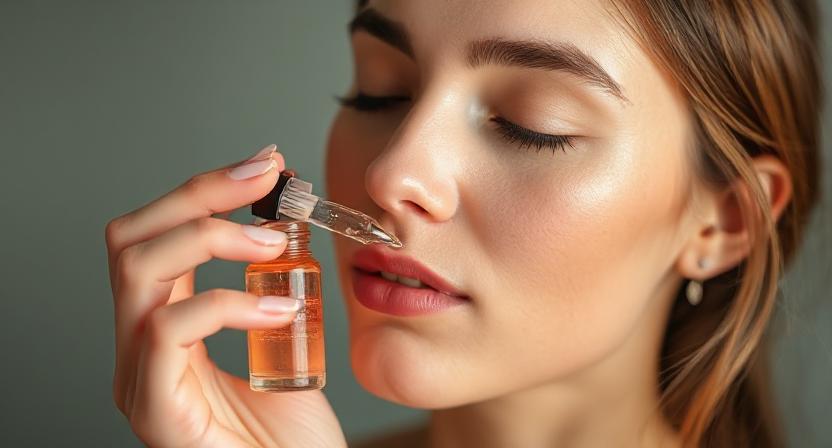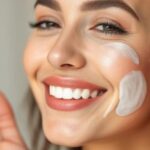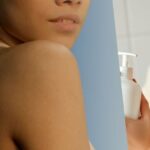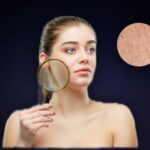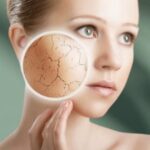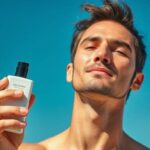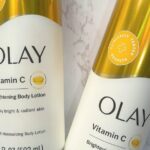Let’s be honest: dealing with dry skin can be an uphill battle. That tight feeling after washing your face, the annoying flakes that ruin a perfect makeup look, fine lines that seem to stand out more than ever… it can be beyond frustrating!
As a licensed esthetician with over 10 years of helping clients adjust their skin’s hydration levels, I’ve had many opportunities to see the absolute wonders a truly great hydrating serum can do for people.
Let’s stop talking about the temporary solutions -today, we’re going to explore the best hydrating serum for dry skin to help you find your ultimate hydration magnet.
The Reason Your Dry Skin Is in Need of More than Just Moisturizer
You may be wondering, “I lounge at night applying cream; why isn’t that enough?” Good question! Think of your skin as a sponge. Moisturizer (especially a good dry skin moisturizer) acts as a sealant by sealing in moisture. But a hydrating serum? That would be soaking the sponge first. Hydrating serum sends a jump of water-attracting and water-binding ingredients into the deeper layers of epidermis, below where your moisturizer sits.
The Science Bit (Simplified!): Dry skin typically has a compromised skin barrier –
Like a leaky roof, you have to fix the barrier. Hydrating serums with humectants (like superstar Hyaluronic Acid) act like magnets, drawing moisture from deep within the skin (your dermis) and potentially from the air (if humidity is above 50%) into the thirsty epidermis or surface layers of the skin. In other words, they help to plump from within.
Professional Experience: I routinely see in my practice big advances for my clients with “moisturizer-resistant” dryness within days of implementing a targeted hydrating serum. It is often the missing link!
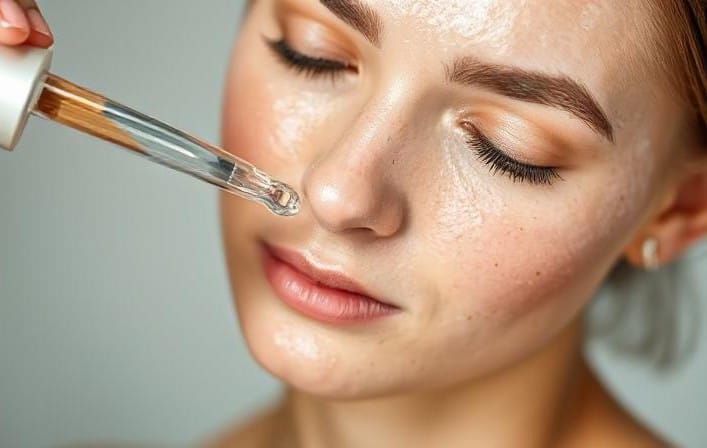
The Hydrating Serum Hall of Fame: The Key Ingredients to Look For
Not all serums will hydrate this parched complexion. Here’s your cheat sheet for the best hydrating serum for dry skin ingredients:
Hyaluronic Acid (HA): The hydration titan. One molecule can hold up to 1000 times its weight in water! Look for serums that source multiple molecular weights (low, medium, and high). We want HA to penetrate and plump multiple layers of skin. Pro Tip: Apply HA to damp skin and add moisturizer immediately to seal it on. Sometimes, applying to dry skin can go awry in dry conditions.
Glycerin: An oldie but a goodie. A solid and powerful humectant is often overlooked. Very effective, stable, and usually well tolerated. Dermatologist Dr. Hadley King often points out glycerin as a “workhorse hydrator” right for almost all dry skin types, even the most sensitive.
Polyglutamic Acid (PGA): Think of this like HA’s superhero cousin. New research has demonstrated that PGA can hold FOUR TIMES the water of HA! There are also potential barriers supporting benefits here, too. This is an amazing option if just HA is not enough.
Panthenol (Provitamin B5): Soothing AND hydrating? Absolutely! Panthenol draws moisture into the skin and calms the irritation/redness often associated with dryness. It is a superhero for sensitized/reactive dry skin.
Ceramides: Technically considered barrier-repair ingredients, ceramides are ESSENTIAL for patients with dry skin. They restore the natural “mortar” in the skin to prevent moisture loss. A serum that combines humectants with ceramides (like our top recommendations below) could be a potent combination!
Niacinamide (Vitamin B3): A multitasking darling ingredient that strengthens the skin barrier (reducing transepidermal water loss), improves skin texture, has anti-inflammatory effects – definitely a bonus for dry and at times irritated skin. Look for concentrations around 5% if you’re looking for hydration.
Aloe Vera and Oat Extract: Natural soothing ingredients that provide gentle hydration and soothe inflammation, which are perfect for dry, sensitive skin types.
The Contenders: Best Hydrating Serums for Dry Skin (2025)
Using a variety of formulation ingredients, customer reviews and consumer experience on products, here is a list of my favorites for different skin care needs as well as cost.
1. SkinCeuticals Hydrating B5 Gel: The Gold Standard
The Skinny: A cult classic for a good reason. Original hydration and the most concentrated product.
Key ingredients: Pure Hyaluronic Acid, Vitamin B5 (Panthenol).
Why it’s good: It is simple, elegant, and super effective. With such a high concentration of HA and soothing B5, you can achieve intense hydration that is not greasy at all. It layers nicely under any moisturizer, and it’s the best for anyone wanting no-nonsense hydration, but with the most intensity.
Best For: All dry/all skin types (even sensitive); anyone wanting a simple serum that applies, hydrates, and performs!
Pros: Light-weight texture, fast-absorbing, unscented, dermatologist-recommended staple.
Cons: Higher price point; just hydrates (doesn’t contain antioxidants or brighteners as well).
2. CeraVe Hydrating Hyaluronic Acid Serum: the barrier-boosting icon
The Gist: You’ll find hydration with barrier-repair at a very accessible price.
Star Ingredients: Hyaluronic Acid, 3 Essential Ceramides, Vitamin B5
Why It Shines: This serum does an excellent job of showcasing CeraVe’s MVE (multi-vesicular emulsion) technology, allowing the ingredients to release over time. The ceramide complex is revolutionary for dry skin, contributing to repairing the moisture barrier whilst hydrating. Unscented. Non-comedogenic.
Best For: Very dry, sensitive, compromised barrier skin; those who are budget-conscious; anyone new to serums.
Pros: Inexpensive, has essential ceramides, great value, drugstore widely available, gentle formula.
Cons: Some people may find the texture to be slightly thicker/silicone-y (it absorbs well otherwise).
3. The Ordinary Hyaluronic Acid 2% + B5: The Affordable Superstar
The Lowdown: Unprocessed, powerful hydration without the fluff and high price tag.
Star Ingredients: Hyaluronic Acid (three molecular weights); Vitamin B5.
Benefits: Proof that great hydration doesn’t have to be pricey! It provides a high concentration of multi-weight HA and B5 in an easy, no-fuss formula. A great entry-level product or a fantastic everyday go-to.
Best For: Budget buyers, hydrational minimalists, and people who want to use this alongside targeted treatments.
Pros: Crazy cheap, powerful core ingredients; simple formula.
Cons: The texture is a little sticky/tacky until fully absorbed, its purely hydrating capabilities.
4. Vichy Minéral 89 Hyaluronic Acid Face Serum: The Probiotic-Powered Plumper
The Overview: Hydration meets resilience in mineral-rich thermal water.
Star Ingredients: Hyaluronic Acid, Vichy Mineralizing Thermal Water (15 minerals), Probiotic Fractions.
Why it’s a hit: The combination of pure HA and Vichy’s characteristic thermal water, forms a hydrator that helps support strength to the skin against daily aggressors. And its gel-like texture is also very lightweight and refreshing.
Best for: Dry skin needing hydration and support of skin strength; people living in assiduous climates; sensitive skin.
Pros: Lightweight, refreshing gel, contains skin-strengthening minerals, fragrance-free, good under make-up.
Cons: It also has some fragrance components (parfum) which can be sensitizing to some, though most people tolerate it well.
5. Drunk Elephant B-Hydra™ Intensive Hydration Serum: The Nutritive Cocktail
The Gist: Provides hydration, with a serious boost of supporting nutrients.
Star Ingredients: Amphoteric Hyaluronic Acid Fusions (multiple weights of hyaluronic acid), Pineapple Ceramide, Vitamin B5, Niacinamide.
Why It Stands Out: It offers more than basic HA through its patented HA Fusions, and pineapple ceramide (a plant ceramide derivative) for barrier support, as well as niacinamide for continued benefits. It has a unique, bouncy gel cream texture.
Best For: Moist/dry skin that wants more than hydration (hydration, barrier, texture); fans of “clean” formulations.
Pros: Multiple benefit formulations, unique pleasant texture, free of common irritants (fragrance, essential oils, silicones – by their standards).
Cons: More expensive option; the texture is pleasant, though a little heftier than pure gels.
Getting the most out of your serum! How to apply for ultimate hydration
Finding the best hydrating serum for dry skin is step one. Figuring out the correct way to use it is step two! Here is the approved way by me, your esthetician:
Gently cleanse: Use a non-stripping, hydrating cleanser (cream or lotion texture). Do not be tempted by hot water!
Tone (optional, but highly recommended): Use an alcohol-free, hydrating toner (toner or essence suggested) on damp skin. Think Klairs Supple Preparation or Laneige Cream Skin to create the perfect canvas.
See rum on DAMP Skin: This is IMPORTANT. When using humectants like HA, this is CRUCIAL. If not, spritz your face with water or some thermal spray. The best way is to put your serum directly after toning while your skin is still damp. Pro Tip: Put 2-3 drops in your hands, gently press and pat onto skin. Do not rub vigorously.
Seal in IMMEDIATELY: Apply your moisturizer within 60 seconds. This seals that hydration into the skin. If extremely dry, use a cream!
AM/PM: Use every day! In the morning, always follow with SPF 30+.
Hydrating Serum FAQs: Questions about Dry Skin and its answers.
Can I use a hydrating serum if I have sensitive skin?
A: Yes! Hydrating serums can also be wonderful for sensitive skin. Look for fragrance-free, dye-free, paraben-free formulas with soothing ingredients (panthenol, ceramides, oat extract). Don’t skip the patch test! CeraVe and Vichy’s Minéral 89 are a couple of sensitive-skin-friendly options.
How often can I use a hydrating serum?
A: Most hydrating serums are made for daily use, morning & night. Using them consistently is important because it allows the skin to maintain a sufficient level of hydration and continue supporting its barrier function.
Can I layer a hydrating serum with other serums (dose vitamin C or retinol)?
A: Yes! Layering is acceptable. The general rule of thumb is the thinnest consistency first. Hydrating serums (water-based serums) would usually be first because they are applied before oil-based serums. You would apply the hydrating serum first to wet skin, allow the hydrating serum to absorb, continue applying one of your treatment serums (vitamin C in the morning, retinol in the night), and seal it with a moisturizer. Just listen to your skin; if irritation develops, you can always separate the two products (I.e, hydrating serum morning and retinol night).
What is the difference between “hydrating” vs “moisturizing”?
Great question! Hydrating = Adding water to the skin (humectants like HA, glycerin), Moisturizing = Preventing water loss via a barrier (occlusives like oils, butters, silicones). Dry skin needs BOTH a hydrating serum to hydrate the skin and a moisturizer to trap in that moisture.
Why does my skin sometimes feel tight after using Hyaluronic Acid?
A: This usually occurs when someone applies HA to dry skin in a dry environment. Remember, HA pulls water. If you apply HA to dry skin in a dry, low-humidity environment, it might be pulling moisture from the deeper layers of the skin, leaving a temporary sensation of tightness. You should always apply HA to damp skin and seal it with a moisturizer immediately! If you live in an extremely arid climate, try looking for PGAs or glycerin-based serums, which may not pull as much as HA.
Are expensive hydrating serums truly better?
A: Not necessarily! While expensive brands might have elaborate textures, and/or patented complexes (like Vichy’s thermal water, SkinCeuticals’ purity), the workhorse hydrate, HA or glycerin, doesn’t have to be the expensive ones (think The Ordinary, CeraVe). It’s all in the ingredient list and what your skin reacts best to. Sometimes, simple is the best!
